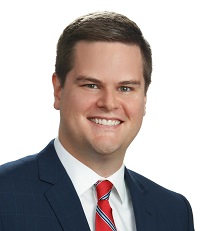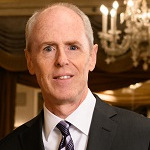Articles
Intro content. Orci varius natoque penatibus et magnis dis parturient montes, nascetur ridiculus mus. Curabitur iaculis sapien sagittis, accumsan magna ut, blandit massa. Quisque vehicula leo lorem, a tincidunt eros tempor nec. In quis lacus vitae risus egestas tincidunt. Phasellus nulla risus, sodales in purus non, euismod ultricies elit. Vestibulum mattis dolor non sem euismod interdum.
-
The Way Forward for Secured Finance Requires Adaptation, Leadership, Data and Due Diligence
The COVID-19 crisis of 2020, like a stress test for businesses and funders, created a landscape of winners and losers. For those passing the test, there are more lending options and potential buyers as M&A activity begins to sprout.
Some had a good “runway” ahead of the regional lockdowns; they were already digital companies or were well capitalized. Others enjoyed being in high-demand sectors such as groceries, technology, home goods, outdoor products, and delivery transportation.
For those companies that were well positioned or adapted quickly, business growth continues, and for those more challenged due to business restrictions, secured finance has been invaluable, along with government rescue loans. This was a repeated theme throughout the annual SFNet Convention held virtually November 17-19. This article covers many of the 34 presentations on the theme: “This Way Forward.”
-
 Diversity, Equity and Inclusion Are the Necessary Corporate Differentiators
Diversity, Equity and Inclusion Are the Necessary Corporate Differentiators
A Moritt Hock & Hamroff partner discusses the potential legal implications for companies that are not committed to diversity and inclusion as increasing shareholder pressures and legal complaints mount.
-
LSQ Provides $7.5MM AR Facility to Marketing Services Firm
LSQ, a leading provider of technology-driven working capital solutions, announced that the company originated a $7.5 million AR facility, including a $3.1 million payoff to the first position lender, for a resurging marketing services firm.
Demand for the firm’s services is normalizing following a COVID-related revenue slump in 2020. It will now have sufficient capital to fulfill a growing number of orders and 2021 business development goals via this new, larger facility with LSQ.
-
SFNet Adds Chief Value Officer to Team
The Secured Finance Network has hired Morten Kucey as Chief Value Officer, a newly created position. Prior to joining the SFNet team, Morten served as Senior Managing Director, Head of Corporate Development for SB360 Capital Partners, LLC.
-
 Interview with Antonio McKinney, Member of SFNet’s Diversity, Equity & Inclusiveness Committee
Interview with Antonio McKinney, Member of SFNet’s Diversity, Equity & Inclusiveness Committee
Antonio McKinney is a business intelligence analyst with over 10 years of professional sales, workforce management and factoring experience. Antonio is an HBCU alumni, hailing from Langston University with a bachelor’s degree in Business Management. He currently works for TBS Factoring, LLC as the embedded analyst for the accounting division. Antonio resides in Oklahoma where he enjoys spending time with his wife and their 8-month-old daughter.
-
 Off Target: How the Main Street Loan Program Missed the Mark
Off Target: How the Main Street Loan Program Missed the Mark
At the 2004 Athens Olympics, American air-rifle shooter Matt Emmons, the reigning world champion in the 50-meter three-position event, held a seemingly insurmountable lead. Going into his final shot, Emmons was in first place and needed only a mediocre score to win gold. Emmons aimed, fired, and hit his target – the wrong target, one lane over. He received no score for that shot and finished in eighth place.
Emmons’ mistake illustrates the importance of aiming at the right target. In April of 2020, amid the COVID-19 pandemic, the Federal Reserve and the Treasury Department announced the Main Street Loan Program (the “MSLP”), which was designed to provide emergency liquidity to small and mid-sized businesses. Although well-intentioned, the MSLP, like Emmons, was aimed at the wrong target, and ultimately missed the mark.
-
CIT Leads $225 Million Letter of Credit Facility for 8minute Solar Energy to Support Its Renewable Energy Development Projects
CIT Group Inc. (NYSE: CIT) today announced that its Power and Energy business served as sole coordinating lead arranger for a $225 million letter of credit facility on behalf of 8minute Solar Energy (8minute), a leading developer of renewable energy projects nationwide.
8minute intends to use the credit facility to arrange purchase power agreements and interconnection agreements associated with its development pipeline of solar and storage projects representing 18 gigawatts of power in California, Texas and the southwestern United States. -
Experity Ventures, LLC Closes on $100 Million Structured Credit Facility
Experity Ventures, LLC (EV) is pleased to announce that it has closed on a structured credit facility for an initial $65 million and up to $100 million to support the growth plan for ProMed Capital. ProMed is a newly acquired portfolio company of Experity.
-
Touching Base
From Disruption to Transformation. SFNet Responds to Meet the Needs of the Industry
-
AmeriFactors Provides $60,000,000 In Funding to a Communications Contractor
CELEBRATION, FL (December 14, 2022) – AmeriFactors Financial Group, LLC, provided $60,000,000 in accounts receivable financing to a communications contractor to assist their business through a heavy growth stage. The client will be building out the infrastructure for a large telecom company. Along with increasing their available capital, they will have the advantage of AmeriFactors accounts receivable management services.
-
Antares Supports Harvest Partners’ Investment in Galway Insurance Holdings With $1.4 Billion in Credit Facilities
Antares announced today that it served as joint lead arranger and is acting as administrative agent on $1.4 billion in senior secured credit facilities to support the recapitalization of Galway Insurance Holdings (“Galway”), the holding company for EPIC Brokers & Consultants (“EPIC”) and JenCap Holdings (“JenCap”) by Harvest Partners, LP and its affiliates (“Harvest”). Galway’s existing private equity investors, Oak Hill Capital (“Oak Hill”) and The Carlyle Group (“Carlyle”), will reinvest alongside the management team and employee shareholders, who will remain significant shareholders.
-
Integer Reduces Borrowing Costs and Increases Flexibility with New Senior Secured Credit Facilities
Integer Holdings Corporation (NYSE: ITGR), a leading medical device outsource manufacturer, today announced that as a result of its financial strength and favorable debt markets, the company has successfully raised $1 billion in Senior Secured Credit Facilities (“New Facilities”) to refinance its existing debt (the “Transaction”). The New Facilities consist of a five-year $400 million Revolving Credit Facility, a five-year $250 million Term Loan A and a seven-year $350 million Term Loan B.
Wells Fargo Bank, National Association is acting as Administrative Agent, Swingline Lender and Issuing Lender. Wells Fargo Securities, LLC, BofA Securities, Inc., Fifth Third Bank, National Association, Keybanc Capital Markets, Inc., Citigroup Global Markets Inc. and Santander Bank, N.A. acted as Joint Lead Arrangers and Joint Bookrunners. -
USA Technologies Announces New Credit Facility with JP Morgan Chase Bank, N.A.
The Credit Agreement provides for a $5 million secured revolving credit facility and a $15 million secured term facility, which includes an uncommitted expansion feature that allows USAT to increase the Credit Facility by up to $5 million. The new facility replaces its existing debt facility, which it entered into on October 9, 2019.
-
 Interview with Rich Gumbrecht, CEO of Secured Finance Network, formerly Commercial Finance Association
RIch Gumbrecht, CEO of the Secured Finance Network, discusses signs of financial stress, recession, tariffs and sources of capital.
Interview with Rich Gumbrecht, CEO of Secured Finance Network, formerly Commercial Finance Association
RIch Gumbrecht, CEO of the Secured Finance Network, discusses signs of financial stress, recession, tariffs and sources of capital. -
 Legal Issues Surrounding Returning to the Office: Interview with Brooke Iley, Co-Chair of Blank Rome’s Labor & Employment Practice Group
Legal Issues Surrounding Returning to the Office: Interview with Brooke Iley, Co-Chair of Blank Rome’s Labor & Employment Practice Group
Brooke Iley counsels and defends domestic and foreign corporations in all areas of employment and labor law compliance and litigation, including wrongful termination, discrimination, harassment, wage and hour class and collective actions, trade secret disputes and data protection, and alleged fiduciary breaches. She represents clients in negotiations, litigations, and arbitrations nationally in these areas.
-
Kapadia Joins MUFG From JPMorgan to Lead Capital Markets Business Globally
Mitsubishi UFJ Financial Group (MUFG), one of the world's leading financial groups, today announced that it has hired Rajesh "Raj" Kapadia as International Head of Capital Markets. Mr. Kapadia will be responsible for the oversight, operation, and growth of MUFG's Capital Markets business globally, including debt and equity capital markets and leveraged finance.
-
White Oak Commercial Finance Provides $81MM Asset-based Credit Facility to Sydney-based Family Office
White Oak Commercial Finance LLC, an affiliate of White Oak Global Advisors LLC announced it provided an $81MM asset-based credit facility to the Aspire 42 group of companies; majority owned by Moss Ridge, a Sydney-based family office that manages a diverse portfolio of holdings across public and private markets.
-
First Business Capital Corp. Announces Closed Asset-Based Lending Deal for Turnaround
Peter Lowney, President of First Business Capital Corp., announced a recently closed and funded $4,100,000 revolving line of credit facility; equipment term loan; equipment CapX loan; and real estate term loan for a commercial door manufacturer in Oregon.
-
 Q&A with Bruce Sim, Head of Acquisitions at eCapital Corp.
Q&A with Bruce Sim, Head of Acquisitions at eCapital Corp.
As head of acquisitions, Bruce Sim is responsible for sourcing commercial finance platform companies and portfolios across North America, and the UK.
Sim has more than three decades of experience in commercial finance, banking, and capital markets. Prior to joining eCapital, he served as senior director of business development at ExWorks Capital, and senior managing director for Glass Ratner Advisory & Capital Group. His banking experience includes executive roles as Head of Capital Markets and Wealth Management at RBC (Caribbean) Ltd, a subsidiary of Royal Bank of Canada; Head of Wells Fargo Global Banking in Miami; and Southeast Region Manager for asset-based lending at Wells Fargo. Sim earned his Bachelor of Science (Mathematics) from the University of Toronto and a Master of Business Administration from York University in Canada.
-
Capstone Headwaters Expands Restructuring Team with the Acquisition of Amherst Consulting
Capstone Headwaters (“Capstone”), a leading middle market investment banking firm, announced it has completed the acquisition of Amherst Consulting LLC (“Amherst”) as part of a continued plan to grow the company’s Financial Advisory Services (“FAS”) group.
The announcement marks the latest development in a multiphase strategy Capstone unveiled this past December with the addition of several new FAS professionals based in various locations, including Denver and Canada. The newly acquired Amherst team will be led by Sheldon Stone and Scott Eisenberg who are joining Capstone’s FAS Group as Managing Directors and will continue to be based in Michigan.
Professional Development Courses
- Live online classes for ABL and Factoring professionals
- On Demand classes in Appraisals, Factoring, Legal, Workout & Bankruptcy
